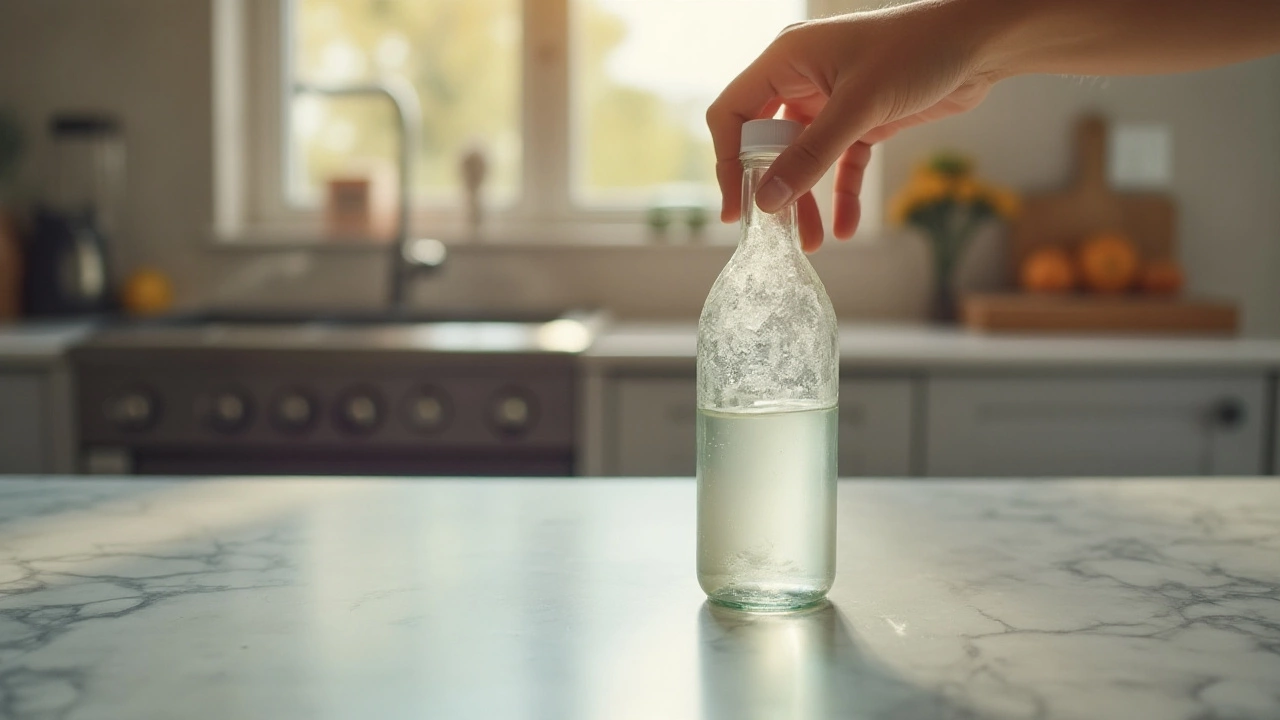Non‑Compatible Surfaces: What You Should Never Clean With the Wrong Products
Ever sprayed a cleaner on a surface and ended up with a dull spot, a stain, or a cracked finish? It happens to the best of us. The trick is knowing which materials don’t play nice with everyday cleaning agents. Below we break down the most common “no‑go” combos and give you safe alternatives that actually work.
Avoid Acid on Stone and Marble
Vinegar, lemon juice, and other acidic cleaners are great for glass or stainless steel, but they eat away at natural stone. If you use a vinegar‑water mix on a marble countertop, you’ll see etching within minutes. Instead, grab a pH‑neutral stone cleaner or a mild dish soap diluted in water. Wipe with a soft microfiber cloth and dry immediately to prevent water spots.
Say No to Bleach on Upholstery and Carpets
Bleach is a powerhouse on tile and bathroom fixtures, yet it can bleach out the colour of fabric and weaken carpet fibres. When you need to tackle a red wine spill on a couch, opt for an enzymatic cleaner or a DIY solution of baking soda and warm water. Test any cleaner in an inconspicuous spot first – you’ll thank yourself if the colour stays intact.
Another common mistake is using harsh scrubbers like steel wool on non‑stick pans or coated oven door glass. The abrasive texture scratches the surface, making it harder to clean later and reducing the lifespan of the coating. A soft sponge or non‑abrasive pad does the job just fine.
Don’t Use Oven‑Safe Cleaners on Glass Doors
Some oven‑cleaning sprays are formulated for the interior metal cavity and contain strong alkalines. Spraying them on a glass door can cause a cloudy film that’s tough to remove. For brown or baked‑on grease on the glass, try a paste of baking soda and a little water, let it sit, then gently wipe with a damp cloth. The result is a clear pane without chemicals.
When dealing with windows, especially exterior glass, steer clear of ammonia‑based cleaners on tinted or low‑E glass. The chemicals can damage the coating, leading to permanent hazing. A simple mix of warm water and a few drops of dish soap, followed by a rinse with plain water, will leave windows streak‑free and safe.
Protect Your Pressure‑Washing Gear
High‑pressure washers are fantastic for driveways, but they can strip paint, etch concrete, or damage delicate decking if you set the PSI too high. Use a lower pressure setting (around 1500‑2000 PSI) for painted surfaces and increase only for sturdy concrete. Always test a small area first, and keep the nozzle moving to avoid gouging.
Similarly, don’t point the spray at wooden fences or garden ornaments. The water can seep into cracks, cause swelling, and promote rot. A garden hose with a wide‑angle nozzle is gentler and just as effective for those jobs.
Quick Checklist for Safe Cleaning
- Read the label: If it says “do not use on stone, wood, or fabric”, trust it.
- Test in a hidden spot before applying any new product.
- Prefer pH‑neutral or specially formulated cleaners for delicate materials.
- Use soft cloths, sponges, or brushes – avoid steel wool and harsh abrasives.
- Adjust pressure settings on power washers based on the surface.
By following these simple rules, you’ll keep your kitchen, bathroom, and living spaces looking fresh without the costly repairs caused by the wrong cleaner. Next time you reach for that bottle, pause and ask yourself: “Is this safe for the surface I’m about to treat?” If you’re unsure, the safe route is always a mild soap and a soft cloth.
Got a tricky surface you’re not sure about? Drop a comment and we’ll help you find the right cleaning method.

Where to Avoid Using Vinegar for Cleaning Your Home
Vinegar is a versatile and eco-friendly cleaning agent, popular for its effectiveness and natural properties. However, it's important to know where its use might do more harm than good. Some surfaces and materials are vulnerable to the acidic nature of vinegar, which can lead to damage or unwanted reactions. Discover the places in your home that are off-limits for vinegar cleaning and how to care for these areas safely. Arm yourself with the right tips and tricks to maintain a clean and healthy home without compromising on safety.
Read More